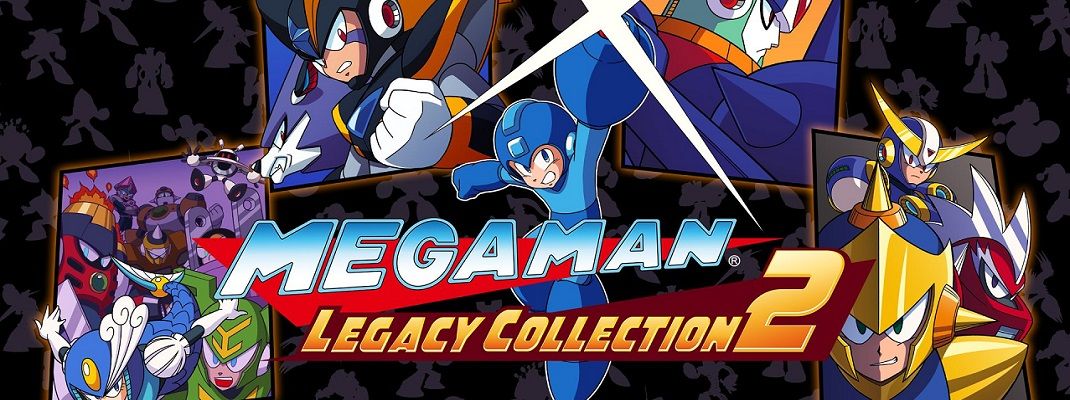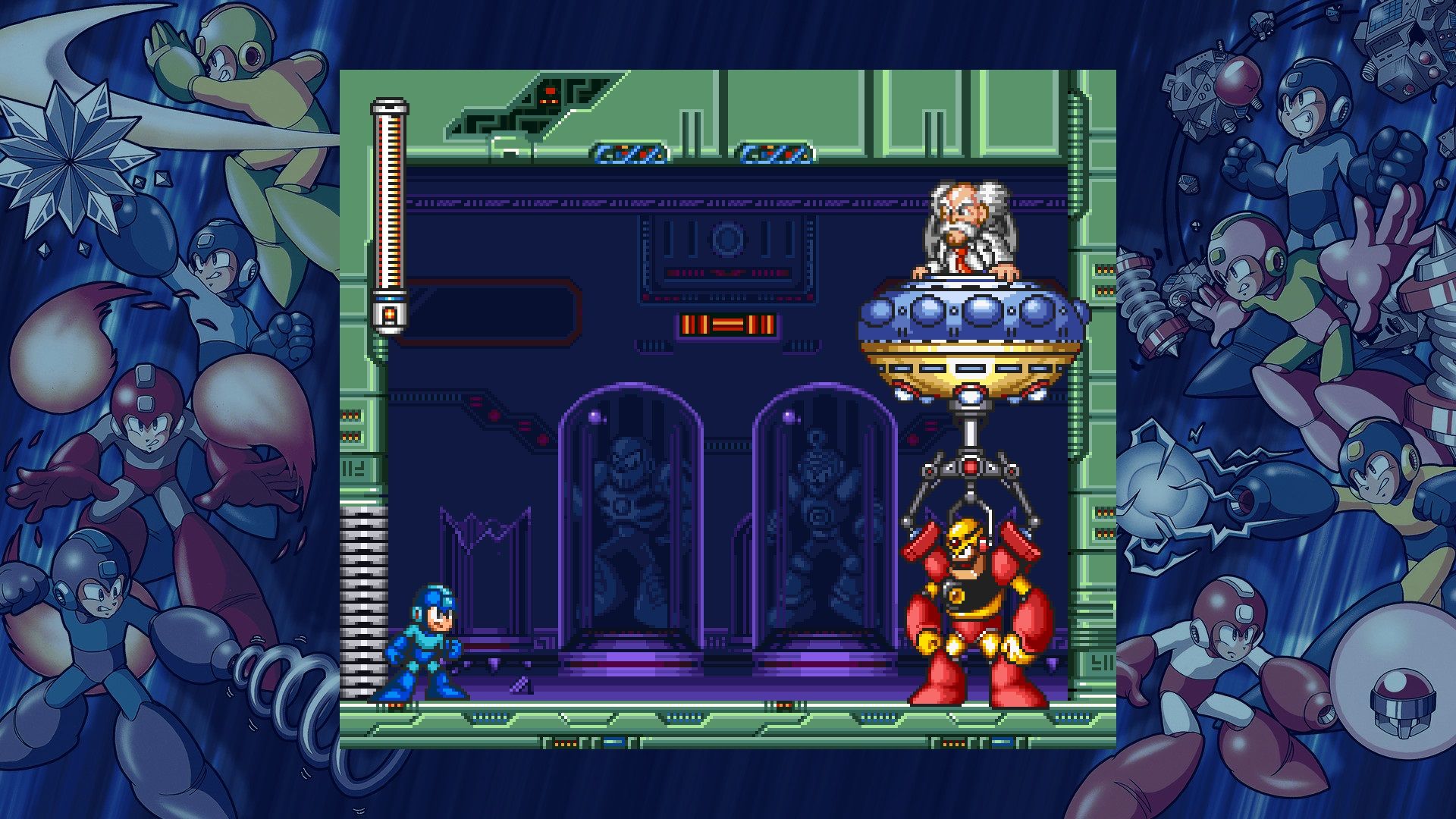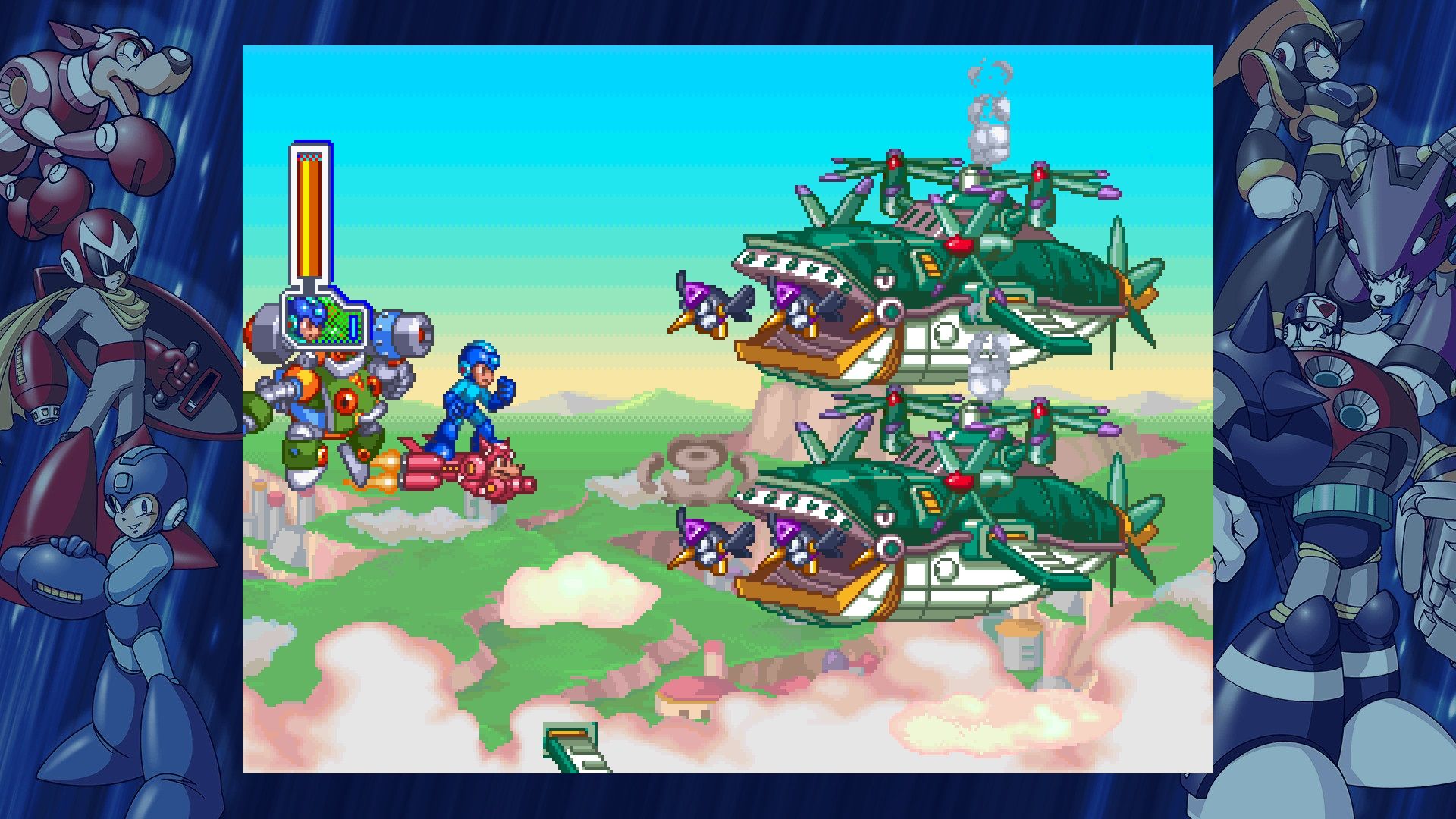The initial Mega Man Legacy Collection wrapped up the first six NES titles in a perfect package, threw in a massive amount of concept art to peruse, and tied it off with a ribbon of clever challenges and level mixing that were expertly well thought out to be difficult but fun. Some might argue that 2004's Mega Man Anniversary Collection was a more complete offering on one disc, but Legacy Collection's play felt perfect and the challenges really are that good. Because of the quality of the package, the announcement of Capcom's Mega Man Legacy Collection 2 could have been filed under the headline "inevitable."
There were a couple points of concern at the off, though. Backbone Entertainment, the folks who pulled off the masterful port work on the first collection, did not participate in preparing this new collection. Capcom handled it completely. Also, this package is comprised of Mega Man 7 through 10, leaving Mega Man and Bass on the cutting room floor, along with other oddities like Mega Man Battle & Chase. If one were to argue that, combined, Legacy Collection entries should comprise the full gamut of the original Blue Bomber's run, then these omissions are skipping some noticeable entries. Personally, Mega Man & Bass is missed, but the other titles, such as his soccer outing, would have only been pointless filler to be tried once and remain ignored.
With completionists left stranded on the side of the road, it seems more pertinent to focus on what is in this collection. Titles 7 and 8 were never exactly beloved and 10 followed too soon after the sublime number 9 to garner the same adulation that its predecessor received. This doesn't mean that there is only one "good" game here. Frankly, there is a high amount of quality packed into all of these titles, though to varying degrees. The SNES part 7 worked to build additional story telling into the proceedings, starting off with a silly helmet vignette, and continued in various parts during the game. It played like the development team was working with fresh eyes on a character that they had left behind, making the experience more vibrant than expected even all of these years later. But it didn't feel quite the same as the NES ones and doesn't have the same reputation that they enjoy. It's too bad; the game is exhilarating when approached with fresh eyes.
Numbers 9 and 10 are more recent entries. It seems likely that anyone interested in this collection has probably played one or both relatively recently on a previous generation console or PC. The port job in this collection feels great, so there is no cause to worry about the upgrade. The Legacy Collection 2 versions also include Protoman as a playable character, no DLC needed.
Those familiar with sequential numbering may have noticed that I skipped number 8. There is a reason for this. As the most ambitious game in the mainline series, complete with anime cutscenes and voice work, PlayStation's Mega Man 8 is the one in the series that is simultaneously the worst entry and the best. Capcom obviously wanted to create a memorable experience with a fully fleshed out tale of Evil Elements, alien robots and silly Saturday morning cartoon character designs. Moments like having a large pile of Mets dropped on the players head were common, pushing the graphical limits that the system could handle back then. It was colorful, creative and highly engrossing, infuriating snow and hoverboarding parts aside. Yes, ol' Helmet Head is much pokier to control in this one, something that is immediately obvious when jumping from 8 to 9, but it still feels like a proper, souped up Mega Man game.
Regarding those cutscenes, Capcom wisely left the horrible English voice acting in place. Bass (as in the musical instrument) is pronounced "Bass" (as in the fish) and Dr. Light's voice actor hilariously trips over his lines often while doing a poor man's Elmer Fudd impression. There was no such thing as a "second take" when recording the voices for this game and it shows. Those who enjoy the glory of a train wreck performance have a veritable feast in Mega Man 8. This is why it is doubly disappointing to see compression artifacts and jaggies rear their head in this new collection. While I wasn't expecting a 4K, high quality transfer, it would have been nice if we received a cleaner copy.
While the titles made it over intact, and exactly as remembered, the Challenges added a real sense of longevity to the original Legacy Collection. That is why it is doubly disappointing this mode isn't quite as good in the second offering. Most of this comes down to the editing of the Remix stages. Before, Backbone took some of the more challenging or memorable segments of the games and taped them together to create an exhilarating endurance run. Each section was properly truncated to be all killer, no filler, making the "remixes" feel smart and well thought out. Here, it feels like Capcom just copy/pasted large swaths of levels back to back with little regard to the quality of the segment and how it fits together. The pacing just feels off, held together like sutures over an infected wound. It seems as though the folks knew the concept, but not why it worked.
Closing Comments:
For the pure cool factor of having the last four numbered games from the original Mega Man's career in one set on a current machine, Mega Man Legacy Collection 2 is absolutely a must buy. These versions are correct and the games themselves are all worth playing. This collection could have been so much more, though. Games that should have been included were left off, steps that could have been taken to improve the experience were ignored and the challenge mode is lacking. It seems as though Capcom didn't feel that this collection was worth the investment that the original one was, which is a shame. Here's hoping that the theoretical Mega Man X Legacy Collection will see Backbone's return.




